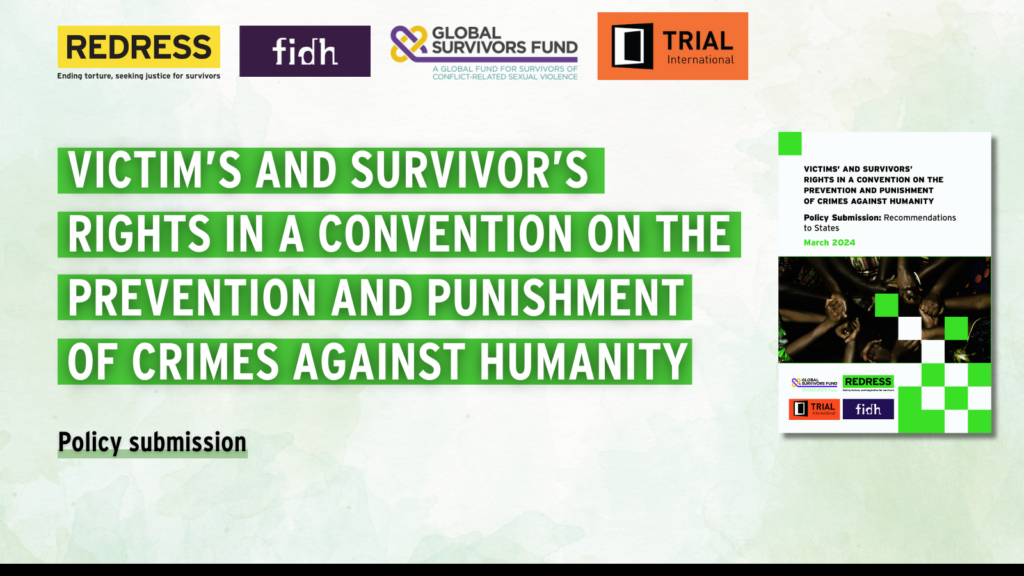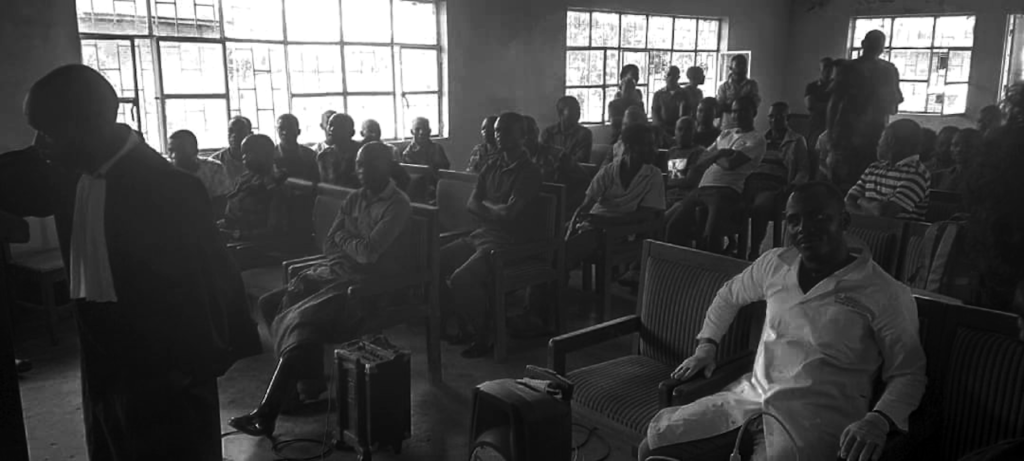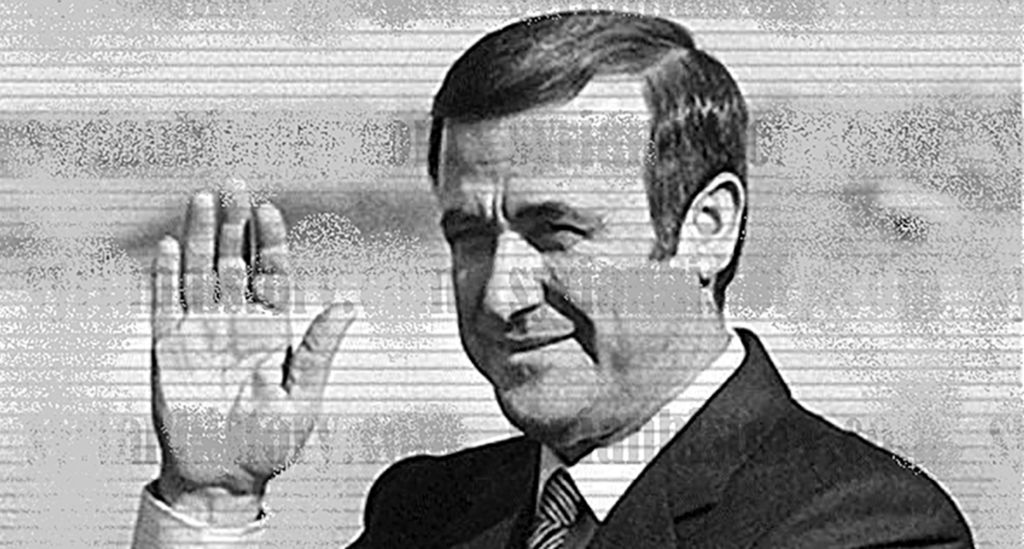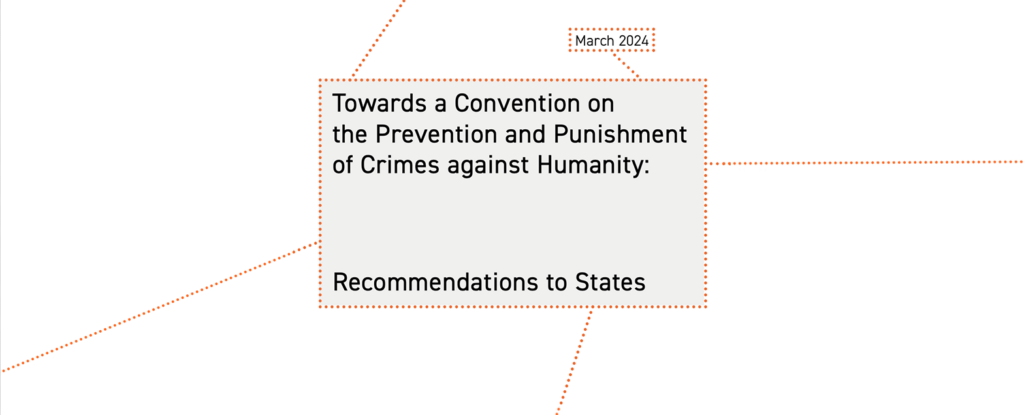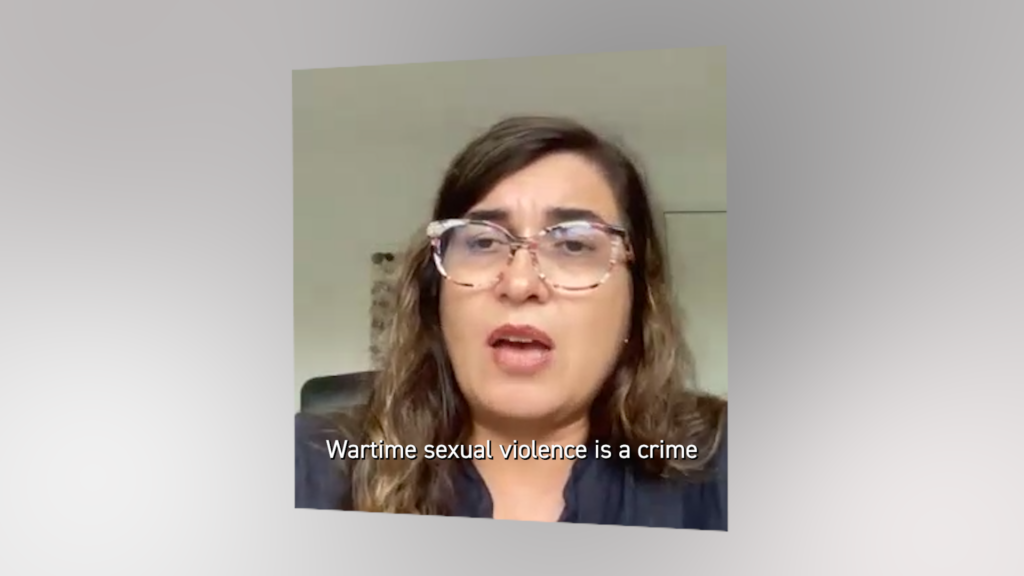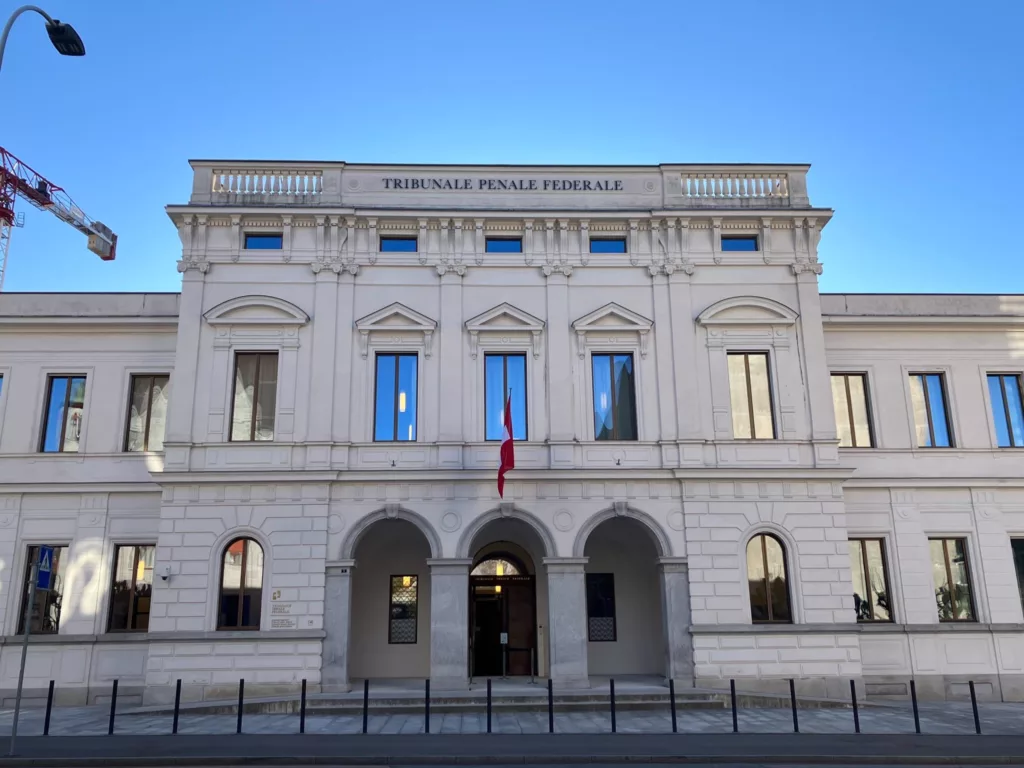The way is now paved for the trial in Switzerland of General Khaled Nezzar
Geneva, 8 February 2022 – It is a giant step forward in the fight against impunity. The Swiss Office of the Attorney General (OAG) has conducted the final hearing of Khaled Nezzar. The OAG holds that numerous war crimes and crimes against humanity were committed while Mr. Nezzar was leading the military junta and serving as Minister of Defense at the beginning of the Algerian civil war. After more than 10 years of investigation and numerous judicial twists, the end of the proceedings paves the way for Mr. Nezzar to be sent to trial before the Federal Criminal Court (FCC) for serious offences constituting complicity in war crimes and crimes against humanity, including extrajudicial executions, torture and enforced disappearances.

A historical universal jurisdiction case
After conducting a three-day final hearing of Mr. Nezzar in Bern between 2 and 4 February, the OAG is about to finish its investigation. This decisive step now allows for Mr. Nezzar to be tried before Swiss courts. The OAG reproaches Khaled Nezzar with having participated as an accomplice in the commission of multiple war crimes (murder, torture, inhuman treatment, illegal detention) as well as killings in the context of a systematic and widespread attack against the civilian population between January 1992 and January 1994, when he was the strongman of the High State Council and served as Minister of Defense. A formal decision by the OAG to refer him to the FCC for trial could be issued very soon.
A complaint filed by TRIAL International in 2011
TRIAL International is at the origin of the case, having filed a criminal denunciation against Mr. Nezzar in October 2011, while he was staying in Geneva. “We welcome the fact that this long investigation has come to an end, paving the way for justice for the countless victims of the Algerian civil war,” said Giulia Soldan, head of the organization’s International Investigations and Litigation program. Sending Mr. Nezzar to trial would set a historic precedent: it would be the first time in the world that such a high-ranking person would be held accountable for war crimes and crimes against humanity before an ordinary national court.
However, at the end of his final hearing, Mr. Nezzar was not detained. This is a cause of concern for the organisation, as the risk of flight, collusion and pressure on witnesses and victims remains important.
A strong signal from Switzerland in the fight against impunity for international crimes
In Switzerland, the trial of Khaled Nezzar would only be the second to be held before the FCC in application of the principle of universal jurisdiction. In June 2021, a Liberian warlord was sentenced by the FCC to 20 years in prison for war crimes.
Philip Grant, Executive Director of TRIAL International, said: “It is high time that Khaled Nezzar’s case be brought to trial. The OAG has a unique opportunity to send a powerful message to dictators around the world. Regardless of the country, regardless of how long ago the crimes were committed, those responsible for atrocities, including former heads of state, should start to worry that universal justice can catch up with them.”
The organisation, which has been fighting for 20 years alongside victims against impunity for the most serious crimes, welcomes the fact that a growing number of states are now taking their obligations under international law seriously, and are beginning to bring justice for atrocities committed in Syria, Rwanda, the Balkans, Liberia, now Algeria, and elsewhere.
A much-needed recognition of the suffering of the victims of the Algerian civil war
At the beginning of the ‘black decade’ in Algeria, which is said to have left 200,000 people dead or missing between 1992 and 2000, Khaled Nezzar was the head of the army as Minister of Defense and de facto leader of the military junta, at the head of troops that committed an incalculable number of abuses. Violations of human rights and international conventions were widespread and the use of torture systematic. Impunity for these acts is total to this day. “No one has ever been investigated in Algeria, let alone tried for these crimes. This is the last opportunity to be able to expose before a tribunal the crimes committed during the Algerian civil war”, added Giulia Soldan.
The long procedure against Mr. Nezzar, which lasted longer than the Algerian civil war itself, was made possible by the courage of the victims and the presence of TRIAL International and committed lawyers at their side. For TRIAL International, as for the victims, it was not possible to let these mass crimes committed by the Algerian regime of the time go unpunished.
Orlane Varesano, one of the victims’ lawyers, said: “My clients, who suffered unimaginable torture, have been fighting for 30 years to obtain justice. This news is a long-awaited recognition of their suffering.”
Highlighting the responsibilities and trying the main perpetrator of the atrocities committed during the first years of the Algerian conflict, would allow the victims of torture, enforced disappearances, sexual violence and all other forms of violence perpetrated to be recognized and to take a step forward towards resilience and reconstruction.
Chronology of the case
19 October 2011: Khaled Nezzar is reported to be on Swiss territory. TRIAL International files a criminal complaint with the Swiss Office of the Attorney General, which opens a war crimes investigation.
20 October 2011: Khaled Nezzar is arrested and questioned by the OAG until 21 October, before being released on the promise to appear for the remainder of the proceedings.
January 2012: Khaled Nezzar appeals against the opening of a criminal investigation against him, arguing that his position as Minister of Defense at the time of the events protected him from possible criminal proceedings in Switzerland.
31 July 2012: The Federal Criminal Court renders a landmark decision rejecting Mr. Nezzar’s appeal, considering that it is not possible to invoke immunity for international crimes (war crimes, crimes against humanity or genocide).
2011 to 2016: Six victims file complaints and more than a dozen are heard as part of the proceedings.
4 January 2017: The OAG closes the case on the grounds that an armed conflict did not take place in Algeria in the early 1990s.
16 January 2017: The complainants file an appeal against the closure order before the FCC.
6 June 2018: The FCC makes public its decision to annul the closure of the complaint by the OAG, which must then resume the investigation. The FCC recognizes, inter alia, the existence of an armed conflict during the relevant period in Algeria, and the involvement of Mr. Nezzar in numerous crimes.
4 February 2022: The OAG undertakes the last audition of Mr. Nezzar.
Download the press release in English or in Arabic.

